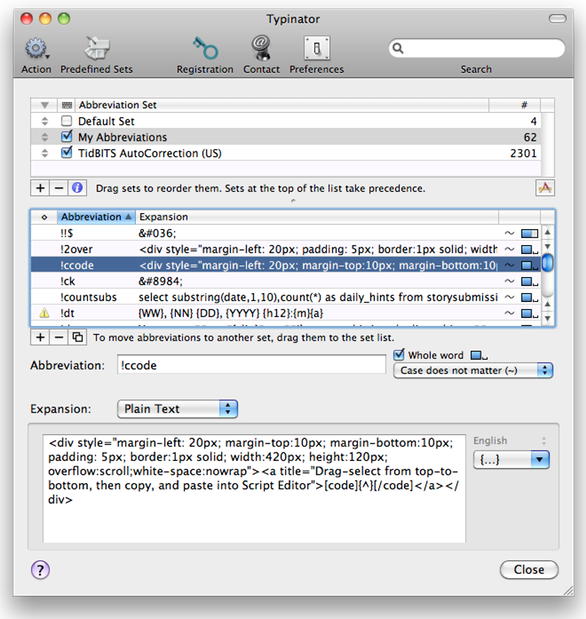
This post describes a macro I wrote that performs some of that migration.īefore I get into the macro itself, I want to point out that I’ve been thinking about moving from TextExpander to Keyboard Maestro for a couple of years-pretty much ever since I bought Keyboard Maestro. I believe given the limitations of Apple's text engine, and the things that Mellel does (and does well) far outweigh any shortcoming that may be evidenced for Mellel not supporting Apple technologies.Next post Previous post Importing TextExpander snippets to Keyboard MaestroĪ few days ago, I wrote about how the new version of TextExpander doesn’t have any compelling features for me and that I’d probably start migrating my snippets from TextExpander to Keyboard Maestro. Applications that use Apple's engine are given "faked" italics or boldfaced text. This also holds true of applications that use Apple's engine, such as Pages and Nisus Writer.įurthermore, Mellel's inability to use "false" italics and boldfaces leads to better looking documents. Each release of OS X brings better support than the last, but the truth is that Apple's RTL support is weak, and Mellel's is far superior. Mellel's method allows direct access to OpenType tables.Īlso, Apple's text engine does not properly support RTL languages. In ATSUI, OpenType features are first translated to their AAT counterpart, then implemented. The OpenType features that Mellel gives the user access to surpass the OpenType features that Apple makes available through ATSUI (their text interface). There definitely is a benefit: beautiful text, right-to-left support and OpenType features. I hope there is an engineering tradeoff involved here, and that the benefits of Mellel bypassing the Apple APIs counterbalance the loss spelling/substitutions/dictonary functionality. An argument to wait with spell check is that you will probably rewrite some stuff which you then have done spell check on, in vain. Alternative a day when no insipiration exists you can just do spell check. I belive you get more creativity and win more time to wait until you 120 pages are written before you do spell check. Let's see what the future brings, I'll write to the Redlers and see if they can put it on their list for future releases. So every time I have to stop writing my sentence, put my thoughts on hold and correct them. Since I am using the 10-finger system I type really fast and in about 1 page I'll have maybe 10 typos. My final thesis will be around 120 pages and it pains me to think of the fact that I'll have to correct every typo by hand - we are not talking about spelling mistakes I make because I don't know how a word is written. I then "teach" my word processor and Typinator those words.īut still, I guess I am on the other side of the line, because I'd really like such a feature. IJulia81 I comletely understand your point, since I often have the same trouble when I use words which are specific to my field of study.

(The grammar check, auto-correct and auto-style options are the first settings I turn off on any installation of Word that I have to use.) Perhaps I'm being a bit particular, but I know others on the forum share a similar view. Yes, there is the age-old comment "But make it an option and people can disable it if they don't like it", but then it's another step to put Mellel back in the state it should have been to start with. In your situation, it would take extra steps to correct what I properly entered, and the program changed without my telling it. As shown in the first example, what if what I really wanted to type was "ans", such as a short–hand for "answer". In addition, I would like to once again make a note as to how this is a bad idea: I don't want a program changing the text that I have just entered without my permission.

(Ever notice how Mellel's highlighting of misspelled words is different from TextEdit?) Mellel does not offer this because its text engine is completely separate from the system. (It is really a form of completion, based on the OS X system dictionary.) The "prediction" capabilities in TextEdit are the same for every program that extends the standard Cococa text engine.


 0 kommentar(er)
0 kommentar(er)
